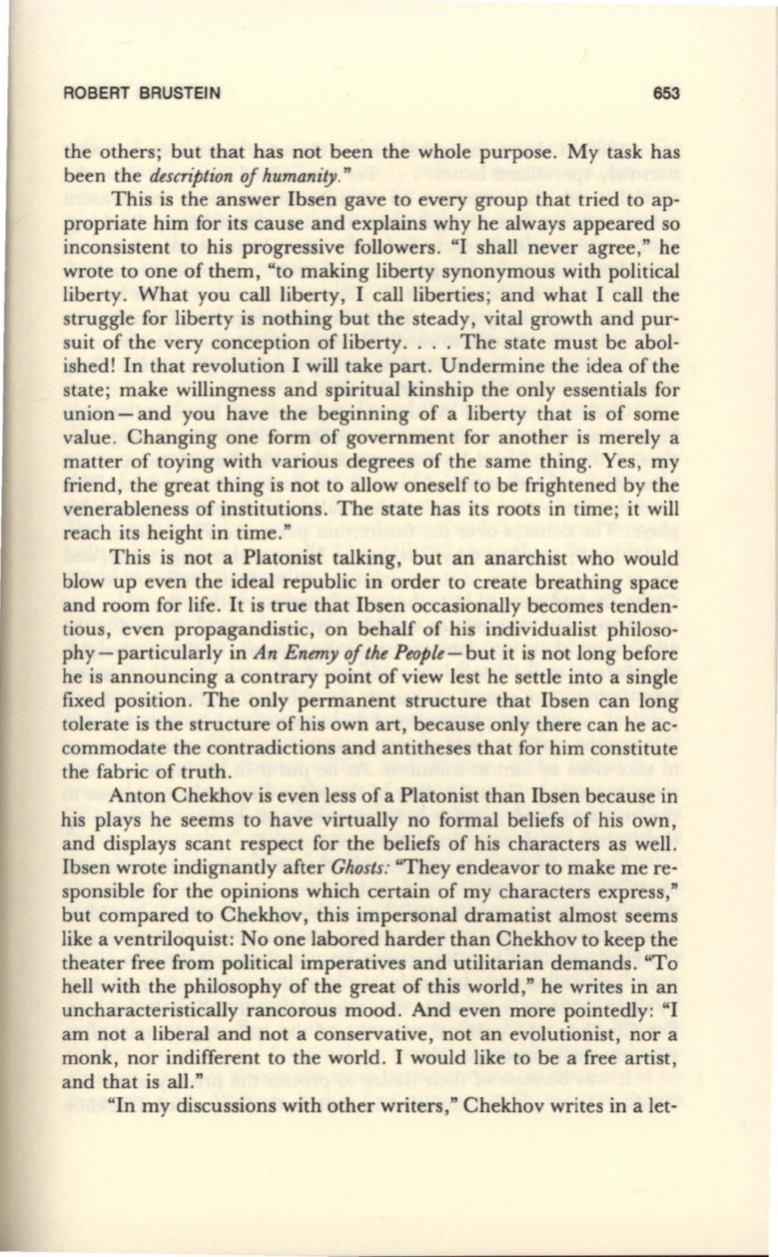
ROBERT BRUSTEIN
653
the others; but that has not been the whole purpose . My task has
been the
description of humanity."
This is the answer Ibsen gave to every group that tried to ap–
propriate him for its cause and explains why he always appeared so
inconsistent to his progressive followers. "I shall never agree," he
wrote to one of them, "to making liberty synonymous with political
liberty . What you call liberty, I call liberties; and what I call the
struggle for liberty is nothing but the steady, vital growth and pur–
suit of the very conception of liberty.... The state must be abol–
ished! In that revolution I will take part. Undermine the idea of the
state; make willingness and spiritual kinship the only essentials for
union- and you have the beginning of a liberty that is of some
value. Changing one form of government for another is merely a
matter of toying with various degrees of the same thing. Yes, my
friend, the great thing is not to allow oneself to be frightened by the
venerableness of institutions. The state has its roots in time ; it will
reach its height in time ."
This is not a Platonist talking, but an anarchist who would
blow up even the ideal republic in order to create breathing space
and room for life. It is true that Ibsen occasionally becomes tenden–
tious, even propagandistic, on behalf of his individualist philoso–
phy- particularly in
An Enemy of the People-
but it is not long before
he is announcing a contrary point of view lest he settle into a single
fixed position. The only permanent structure that Ibsen can long
tolerate is the structure of his own art, because only there can he ac–
commodate the contradictions and antitheses that for him constitute
the fabric of truth .
Anton Chekhov is even less of a Platonist than Ibsen because in
his plays he seems to have virtually no formal beliefs of his own,
and displays scant respect for the beliefs of his characters as well.
Ibsen wrote indignantly after
Ghosts:
"They endeavor to make me re–
sponsible for the opinions which certain of my characters express,"
but compared to Chekhov, this impersonal dramatist almost seems
like a ventriloquist: No one labored harder than Chekhov to keep the
theater free from political imperatives and utilitarian demands . "To
hell with the philosophy of the great of this world," he writes in an
uncharacteristically rancorous mood. And even more pointedly: "I
am not a liberal and not a conservative, not an evolutionist, nor a
monk, nor indifferent to the world. I would like to be a free artist,
and that is all."
"In my discussions with other writers," Chekhov writes in a let-


